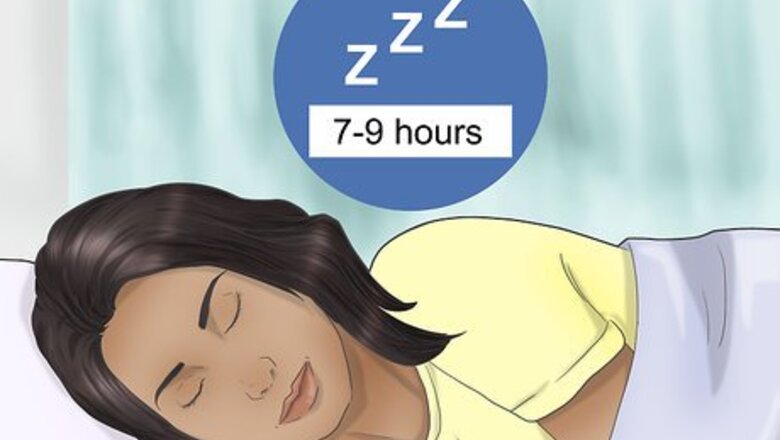
views
Get 7 to 9 hours of sleep every night.
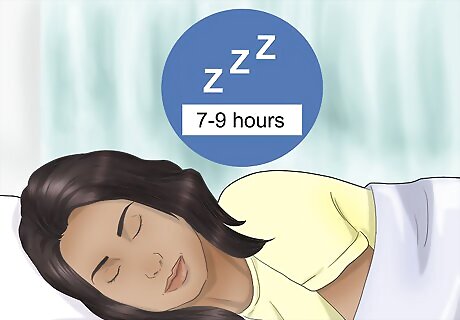
Not getting enough sleep can make your eyes puffy and swollen. If you keep waking up with irritated and puffy eyes, ask yourself if you've been sleeping enough. Try to get in the habit of going to sleep and waking up at the same times every day so you know you’re getting a full 7 to 9 hours. EXPERT TIP Alicia Ramos Alicia Ramos Skincare Professional Alicia Ramos is a Licensed Esthetician and the owner of Smoothe Denver in Denver, Colorado. She received her license at the School of Botanical & Medical Aesthetics, with training in lashes, dermaplaning, waxing, microdermabrasion, and chemical peels, and now provides skin care solutions to hundreds of clients. Alicia Ramos Alicia Ramos Skincare Professional Check with your doctor if you're noticing your face is puffy frequently. Alicia Ramos, licensed aesthetician and owner of Smoothe Denver, says: "There can be a lot of different factors that can cause you to have a puffy face in the morning. However, it's important to consult your doctor if this is something you're worried about, because it may be the symptom of an underlying problem. In most cases, though, it's just a healthy balance issue. It could be caused by allergies, a lack of sleep, drinking alcohol before bed, or dehydration, for instance."
Avoid eating food or looking at screens before bed.
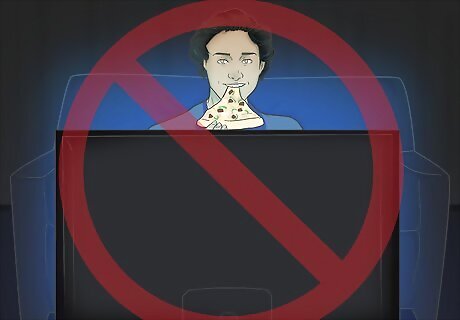
Eating and screen-watching can impact your quality of sleep. If you're not getting a good night's sleep, your eyes are more likely to be puffy in the morning. Make it a habit to stop eating and looking at screens an hour before you go to sleep.
Sleep on your back.
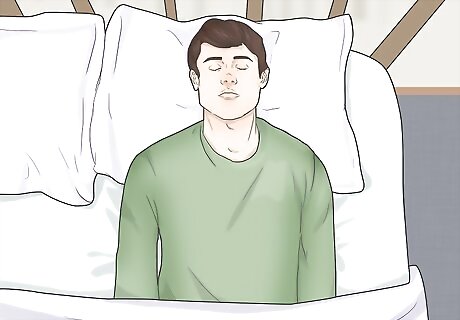
Gravity pulls fluid into your eyes when you sleep on your stomach or side. When this happens, your eyes are more likely to look puffy and swollen in the morning. Sleep on your back so fluids are being pulled away from your under-eye area throughout the night. Sleeping on your back may take some getting used to. Make an effort to fall asleep on your back every night. If you wake up and you’re on your side or stomach, make yourself turn over onto your back. Eventually, your body will get used to sleeping that way.
Prop your head up with an extra pillow.
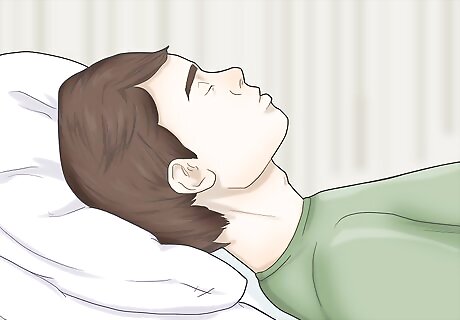
Elevating your head can prevent fluids from pooling around your eyes. Instead of sleeping with 1 pillow at night, sleep with 2 so your head is slightly raised. If sleeping with 2 pillows gives you a sore neck, try sleeping with 1 pillow folded in half so it's thicker, or use pillows that aren’t as stiff.
Wash your face every night.
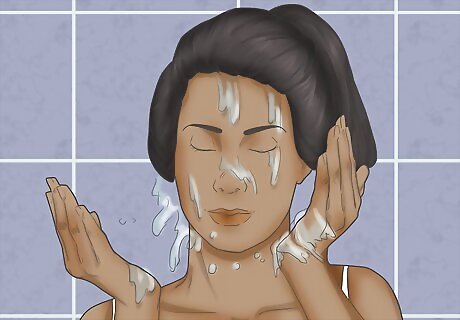
Warm water and a gentle cleanser clear away debris that irritate your eyes. When your eyes are irritated, they tend to get puffy and swollen. Keeping the skin around your eyes clean will reduce the chance that you’ll wake up with puffy, irritated eyes in the morning. You can also wash your eyes in the morning by splashing your face with cold water. The cold water will clear out your eyes and help reduce any puffiness.
Eat less than 2,300 mg (0.16 tbsp) of sodium per day.
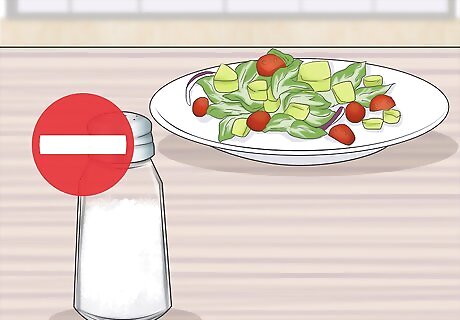
A high-sodium diet can lead to puffy eyes. Sodium makes the body retain more fluid, and since fluid around the eyes is what makes them look puffy and swollen, you want to avoid eating too much of it. An easy way to cut down on the sodium you eat is to limit how much processed foods and restaurant meals you're eating.
Avoid sugar and artificial sweeteners.
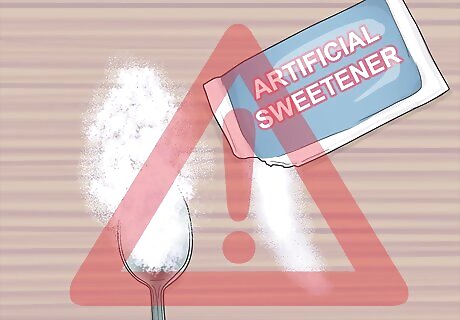
Sugar and artificial sweeteners can cause inflammation. When baking or sweetening your coffee or tea, try using healthier alternatives to sugar and artificial sweeteners, like honey and stevia. When you’re buying packaged foods, read the ingredients list and look for things that are low in sugar and artificial sweeteners.
Drink less alcohol.
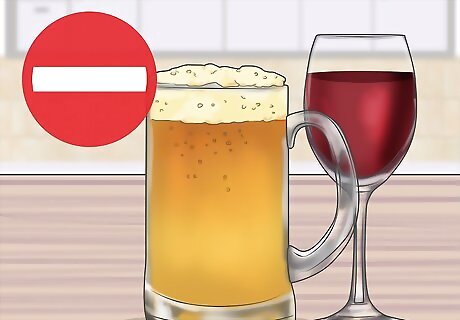
Drinking excessive alcohol causes bloating and dehydration. It also impacts the quality of sleep you get, making the problem even worse. Try drinking less alcohol or no more than 1 to 2 drinks a day. If you do drink more, remember to drink water too so you stay hydrated.
Quit smoking.
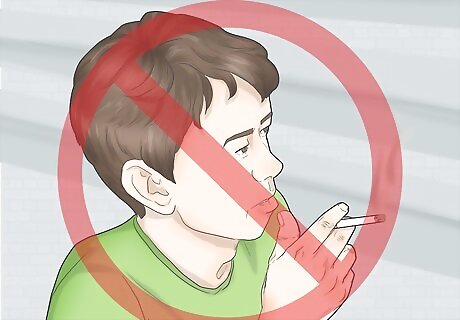
Smoking weakens the already-sensitive skin under your eyes. If you smoke, try to quit so you have a better chance of waking up with eyes that aren't puffy. If you're having trouble giving up smoking completely, cut back and see if that helps.
Use over-the-counter eye drops if you have allergies.
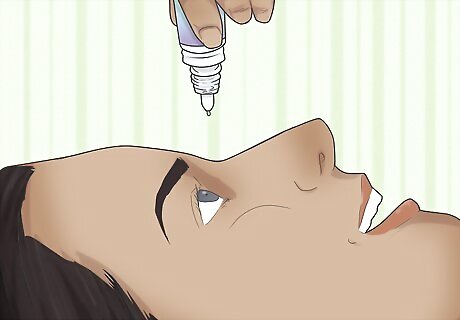
Swollen eyes can be a sign that your allergies are acting up. If your eyes are also watering and itching, try over-the-counter allergy eye drops to soothe your eyes so they’re less puffy and irritated. You can also try a saline eye rinse to clear out your eyes.
Remember to take out your contacts.
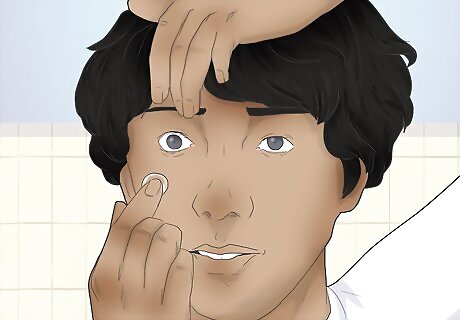
Puffy eyes could be from leaving your contacts in for too long. Sleeping with your contact lenses on or wearing them for long periods of time can cause your eyes to swell up. Get in the habit of taking your contacts out in the evening so you don’t accidentally fall asleep wearing them.
Use eye creams and sunblock.
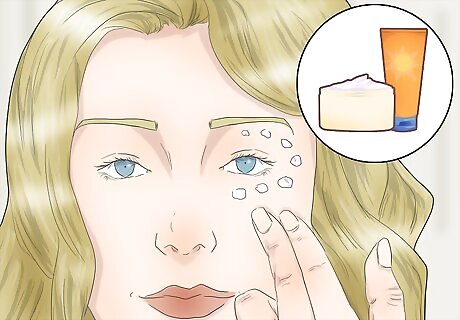
The skin around your eyes gets weaker with age. If you notice your eyes are becoming puffier in the mornings as you get older, start applying an anti-aging under-eye cream to the skin under your eyes every night. Also, gently apply sunscreen to the skin around your eyes whenever you’re going to be outside to protect them from the sun.




















Comments
0 comment